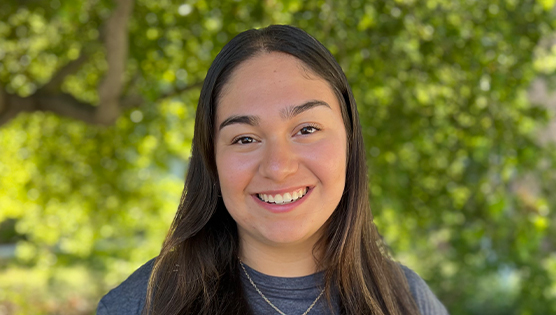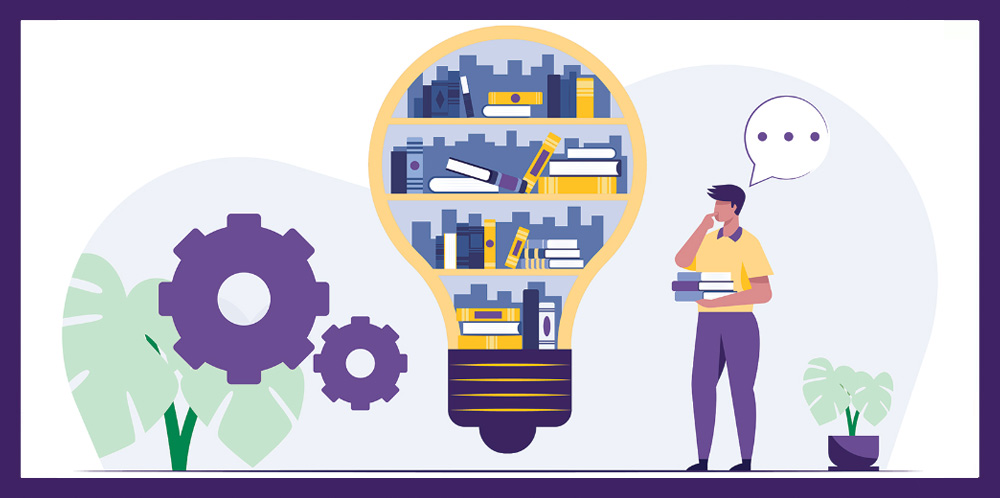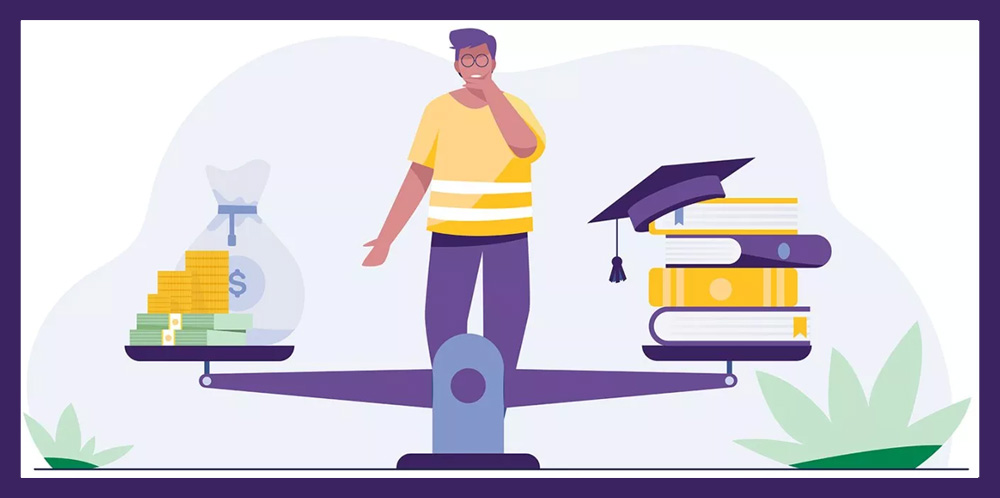Sociology
Sociologists investigate the underlying forces that connect our personal troubles to larger social problems.
With a major in sociology, you’ll be prepared to shape societal improvements to how individuals interact with institutions, organizations and cultures.
Gain perspective on a personal and global scale
Throughout your sociology courses, you will receive rigorous theoretical and methodological training. This will help you gain meaningful insights to understand all levels of society — from the intimate micro-interactions of everyday life to the broader dynamics of globalization.
By employing the critical perspective you’ll learn in the program, you will be able to effectively evaluate social issues and understand social change to make positive contributions in an increasingly diverse and global society.
Produce sociological knowledge through research
There are two required research methods courses in our major program. Your professors will provide one-on-one mentorship while you conduct research on topics of your choice. You can then expand your projects into research papers and go on to present at local, regional and national conferences.
Gain an interdisciplinary lens
Explore specific interests through a broad range of elective courses, covering topics such as:
- Gender
- Race and Ethnic Relations
- Deviance in U.S. Society
- Religion and Culture
- Sexuality
- Popular Culture
- Immigration
- Medical Sociology
- Families and Intimate Relationships
At a Glance

Degree Type
Bachelor of Arts
Department
Sociology Department
School/College
College of Arts and Sciences
Next Steps
Interested in this major? Here's what you can do next:
With challenging and relevant courses, outstanding faculty, small class sizes, and an emphasis on hands-on learning, the sociology program will position you to succeed in your chosen career.
Degree requirements
Find out what it takes to earn a degree in sociology and explore the courses.
Highlighted Courses
Get familiar with some of the courses you might take in this major.
SOC 103: Contemporary Global Issues
A critical review and assessment will be undertaken of the origin and present condition of the major global issues and how these issues are being addressed by the local and international organizations. We will also explore the subjects of human trafficking, human rights, coexistence among peoples of different cultures, and other critical global issues such as poverty eradication, environmental degradation, health crises and family/gender issues.
Read descriptionSOC 214: Introduction to Public Health
This course introduces students to key public health concepts and provides a foundational understanding of the history, systems, and practice of public health. Students learn the process of how health issues in a population are identified, treated and prevented through public health efforts and utilizing epidemiologic tools. Additionally, the social, behavioral and environmental factors that impact health are examined within a public health framework.
Read descriptionSOC 300: Sexuality and Society
Primarily focusing on the United States, this course examines sexuality through a sociological lens. We will explore how sexual attitudes and behaviors have changed over time, looking at which sexual attitudes and behaviors are considered "normal" vs. "deviant," and "moral" vs. "immoral" in mainstream society and different subcultures.
Read descriptionSOC 318: Immigration in the Global Age
International immigration is an integral part of the globalization processes. This course explores the key current theoretical and empirical debates in the study of this global phenomenon. The course covers transnational networks, the formation and implementation of labor recruitment (including human trafficking), migration policies, political conflict, economic and social adaptation, the development of socio-cultural traditions (ethnic identities0, and the transformation of gender relations.
Read descriptionSOC 360: Racial and Ethnic Relations
The course examines the historical, political, economic, and cultural dimensions of racial and ethnic relations in the United States from the mid-1800s to the present, with an emphasis on racism. Includes an investigation of the link between residential segregation and opportunity for African Americans, a critical interrogation of whiteness and white privilege, and an exploration of racism in California, particularly for California Indians.
Read descriptionSOC 370: Deviance in U.S. Society
Introduces students to sociological concepts of deviance, social control, social power, and identity construction/management. Focusing on the topic of deviance, an exploration of how groups of people have the power to shape and apply social definitions of "normalcy" and "morality" will provide an analytical lens through which to look at the consequences for those labeled as "deviant."
Read descriptionRecommended Minors
Want to add even more value to your degree? Consider one of these minors to gain a unique combination of skills and perspectives.
- Ethnic and Race Studies
- Gender and Women’s Studies
- Political Science
- Public Health
- Religion
- Theology and Christian Leadership
- Liberal Studies in Education
- Psychology
- Global Studies
- Legal Studies
- Criminology and Criminal Justice
We offer hands-on opportunities that give you the freedom to explore your passion through real-world work and prepare for a fulfilling career.
-
Internships
In the Applied Sociology course, you will use your knowledge and skills to solve social issues that are relevant to your internship with a non-profit organization or government agency.
-
Travel Courses
Exploring Japanese Society, Popular Culture, and Media in Japan is a travel course that introduces you to Japanese society and culture. At the end of the semester, students will visit Japan for approximately two weeks to directly observe interactions of Japanese people, experience Japanese life style, and visit Japanese media sites.
-
Research Opportunities
Through courses in research methods and individual guidance from sociology faculty, you will have the opportunity to conduct your own research and present it at conferences within the field.

Working in the Office of Undergraduate Admission made me realize I really enjoy talking and connecting with families and prospective students. I love being a part of their journey by answering questions and giving them tours as a Presidential Host. I decided to major in sociology because of those experiences. They helped me realize that my skills and interests are aligned with what admission counselors do, and my goal in the future is to help underserved youth get to college and stay in college.
Jennifer Quintero '25
Read their storyOur alumni are well prepared for graduate study and professional work in sociology, social work, law, public health, non-profit management, teaching and other fields that require the ability to think ethically and critically about a wide range of key issues.
Potential Careers
Eligibility Interviewers, Government Programs
Determine eligibility of persons applying to receive assistance from government programs and agency resources, such as welfare, unemployment benefits, social security, and public housing.
Read descriptionCommunity Health Workers
Promote health within a community by assisting individuals to adopt healthy behaviors. Serve as an advocate for the health needs of individuals by assisting community residents in effectively communicating with healthcare providers or social service agencies. Act as liaison or advocate and implement programs that promote, maintain, and improve individual and overall community health. May deliver health-related preventive services such as blood pressure, glaucoma, and hearing screenings. May collect data to help identify community health needs.
Read descriptionEducational, Guidance, and Career Counselors and Advisors
Advise and assist students and provide educational and vocational guidance services.
Read descriptionRehabilitation Counselors
Counsel individuals to maximize the independence and employability of persons coping with personal, social, and vocational difficulties that result from birth defects, illness, disease, accidents, aging, or the stress of daily life. Coordinate activities for residents of care and treatment facilities. Assess client needs and design and implement rehabilitation programs that may include personal and vocational counseling, training, and job placement.
Read descriptionSociologists
Study human society and social behavior by examining the groups and social institutions that people form, as well as various social, religious, political, and business organizations. May study the behavior and interaction of groups, trace their origin and growth, and analyze the influence of group activities on individual members.
Read descriptionHuman Resources Specialists
Recruit, screen, interview, or place individuals within an organization. May perform other activities in multiple human resources areas.
Read descriptionSocial and Community Service Managers
Plan, direct, or coordinate the activities of a social service program or community outreach organization. Oversee the program or organization's budget and policies regarding participant involvement, program requirements, and benefits. Work may involve directing social workers, counselors, or probation officers.
Read descriptionEducation Administrators, Postsecondary
Plan, direct, or coordinate student instruction, administration, and services, as well as other research and educational activities, at postsecondary institutions, including universities, colleges, and junior and community colleges.
Read descriptionEmployers
Some of the organizations our graduates work for include:
- Area Housing Authority
- California Lutheran University
- Chapman Leonard Studio Equipment
- Coalition for Family Harmony
- CommonSpirit Health
- Conejo Health
- County of Ventura
- George Mason University
- Hope of the Valley Rescue Mission
- Interface Family and Children Services
- Mercy House Living Centers
- Planned Parenthood
- Stanford University
- University of California, Los Angeles
Graduate Schools
Our alumni have pursued advanced degrees at:
- Boston University
- California State University, Northridge
- California State University, San Diego
- Cornell University
- George Mason University
- Georgia State University
- Golden Gate University Law School
- The London School of Economics and Political Science
- Southwestern Law School
- University of Barcelona
- University of California, Davis
- University of California, Los Angeles
- University of Denver
- University of Southern California
- Vanderbilt University
This page includes information from O*NET OnLine by the U.S. Department of Labor, Employment and Training Administration (USDOL/ETA). Used under the CC BY 4.0 license. Some occupations listed above may require a related graduate degree.
How We Prepare You for Success
We have 20,000+ employer contacts for jobs and internships, with over 200 listings posted each week.
Our excellent career counselors in the Career Services center will get in touch with you during your very first term on campus. They offer over 50 workshops each year on resume writing, interviewing, salary negotiations, applying to graduate schools, and other critical skills to help you begin your career successfully.
After you graduate from Cal Lutheran, you receive free access to Career Services for life, as a valued member of our alumni family.
of Cal Lutheran graduates find a job or enroll in graduate school within nine months
We work with students and families to make sure everyone who is admitted to Cal Lutheran can afford it.
Tuition & Fees
You and your family might have questions about how you’ll cover the costs of college. We can tell you this — it costs less than you think.
Scholarships & Grants
We offer a range of awards based on academic merit and financial need. This is money that does not need to be repaid.
Net Price Calculator
Take a few minutes to use our calculator and get yourself a personalized estimate of your costs and financial aid.
Let us know and we'll send you information about our academics, campus life, the admission process, and more!
Ready to apply?
We’re now accepting applications for Fall 2026!
Level Up Your College Search
Check out our college success guides to help you navigate the search process.

How to Choose a College Major
Your major will be a significant part of your academic experience. How do you pick the right one?

5 Tips for Applying to College
Learn how to look good when applying to colleges, with personal tips to stand out from Cal Lutheran admission counselors.

How to Afford College
Read this guide to minimize costs as you save for college during high school — learn all about scholarships, financial aid, FAFSA, and more!

5 Key Advantages of a Liberal Arts Education
Are the liberal arts still worth studying in today's world? If you want a future-proof college education — absolutely.

How to Get Recruited for College Athletics
Check out our tips to connect with coaches, navigate campus visits, and move forward with confidence.

Private vs. Public Universities
The differences between each — and how to choose the school with your dream college experience.
